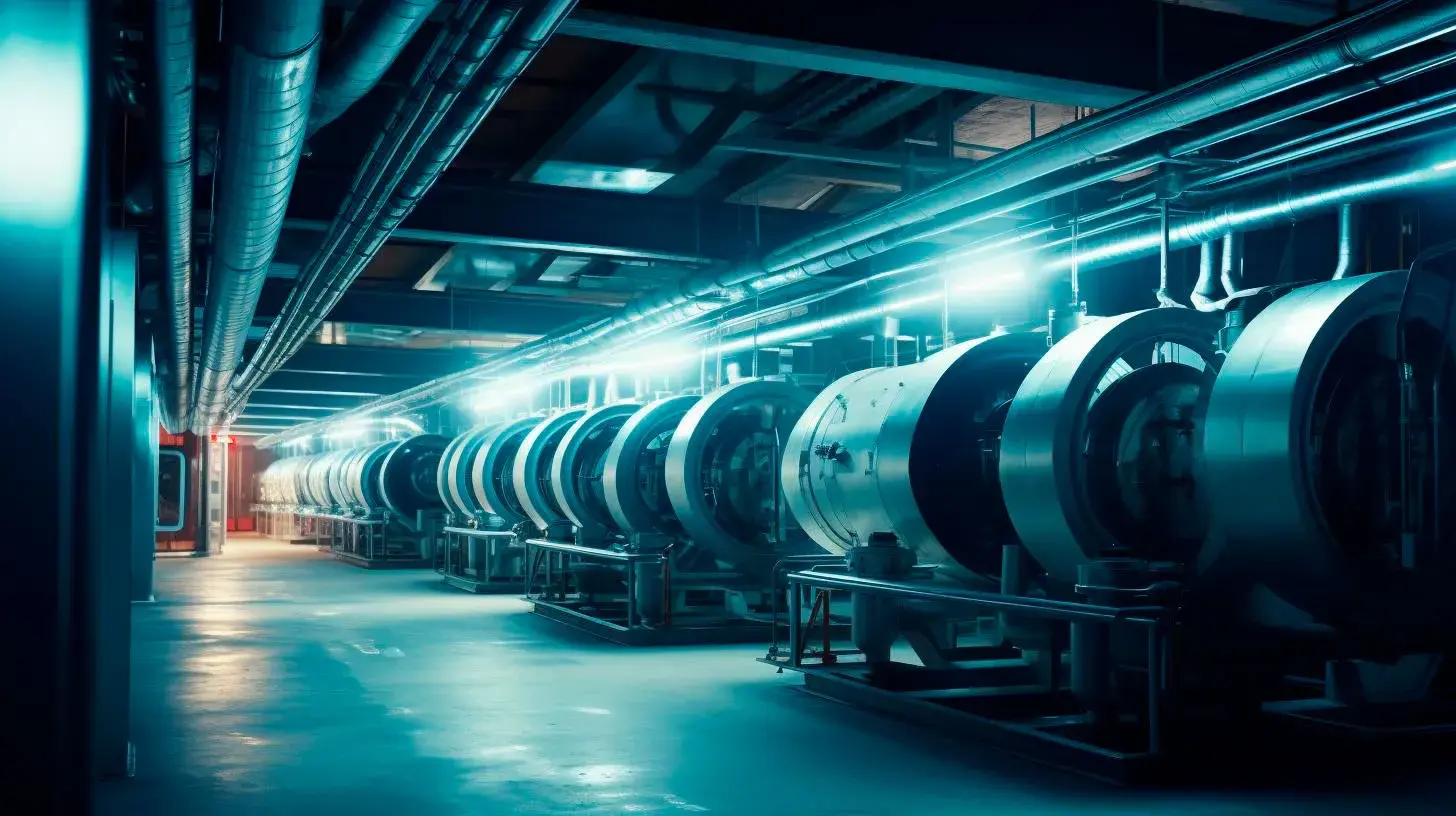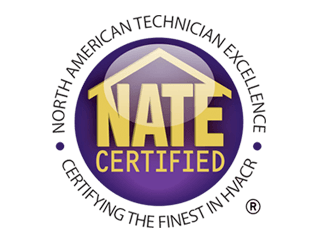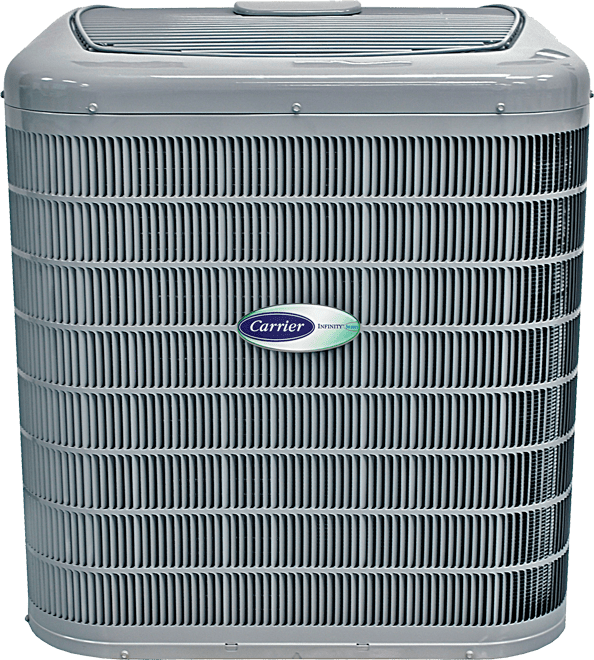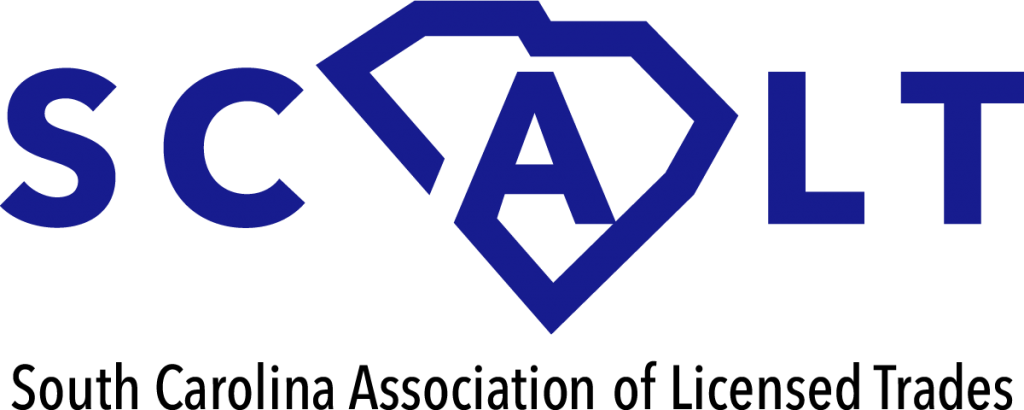Air Conditioning Service, Heating Service, AC Repair, Heating Repair & HVAC InstallationSeneca, SC, Clemson, SC, Central, SC, Pendleton, SC, Fairplay, SC & Walhalla, SC
Exploring the Money-Saving Benefits of Energy-Efficient HVAC Systems
In this article, we will delve into the money-saving advantages of energy-efficient HVAC systems and explain how investing in one can be a wise decision for both your wallet and the environment.

Key Takeaways:
- Energy-efficient HVAC systems save energy and reduce utility costs.
- Investing in an energy-efficient HVAC system can bring significant financial benefits in the long run.
- These systems not only reduce energy consumption but also contribute to a greener environment.
Understanding Energy-Efficient HVAC Systems
Before we explore the money-saving benefits, let’s first understand what makes a HVAC system energy-efficient. Energy-efficient HVAC systems are designed to optimize energy usage while maintaining a comfortable indoor environment. They achieve this by incorporating advanced technologies such as variable-speed motors, smart thermostats, and zoned heating and air conditioning.
One of the key features of energy-efficient HVAC systems is their ability to adapt based on real-time conditions. For instance, smart thermostats can automatically adjust temperature settings based on occupancy or the time of day, ensuring that energy is not wasted when it’s not needed. This level of control enables users to efficiently manage their energy consumption and reduce their carbon footprint.
The Financial Benefits of Energy-Efficient HVAC Systems
Investing in an energy-efficient HVAC system can have a significant impact on your finances in the long run. While the initial cost may be higher compared to traditional systems, the energy savings and other financial advantages outweigh the initial investment.
Let’s explore some of the key money-saving benefits:
Lower Energy Bills
Energy-efficient HVAC systems are designed to consume less energy while still providing the desired level of comfort. According to the U.S. Department of Energy, upgrading to an energy-efficient system can reduce heating and air conditioning costs by up to 20%. This decrease in energy consumption directly translates to lower utility bills, allowing you to save more money in the long term.
Key Takeaway: Energy-efficient HVAC systems significantly reduce energy bills, leading to long-term cost savings.
Longer Lifespan
Compared to traditional HVAC systems, energy-efficient units tend to have a longer lifespan. This is due to their enhanced design and high-quality components, which are built to withstand the rigors of efficient operation. By investing in an energy-efficient HVAC system, you can enjoy reliable performance for a longer period, eliminating the need for frequent replacements and saving on maintenance costs.
Key Takeaway: Energy-efficient HVAC systems have a longer lifespan, resulting in reduced maintenance and replacement costs.
Rebates and Incentives
Many governments and utility companies offer attractive rebates and incentives to encourage the adoption of energy-efficient HVAC systems. These financial incentives can help offset the initial cost and make the transition more affordable. Additionally, energy-efficient systems may also qualify for tax credits, providing further savings for homeowners and businesses.
Key Takeaway: Energy-efficient HVAC systems may be eligible for rebates, incentives, and tax credits, reducing the overall cost of installation.
Increased Property Value
An energy-efficient HVAC system is a valuable asset that can significantly increase the value of your property. With growing awareness of sustainability and energy conservation, prospective buyers are increasingly attracted to homes and buildings equipped with energy-efficient features. Investing in an energy-efficient system not only provides immediate cost savings but also adds long-term value to your property.
Key Takeaway: Energy-efficient HVAC systems enhance property value and attract environmentally conscious buyers.
Conclusion
Energy-efficient HVAC systems offer compelling financial benefits in addition to their positive environmental impact. By reducing energy consumption, lowering utility bills, and providing long-term cost savings, these systems are a smart investment for both residential and commercial properties. Whether you are a homeowner looking to lower your energy expenses or a business owner aiming to cut operational costs, an energy-efficient HVAC system can help you achieve your goals while contributing to a greener future.
How Energy-Efficient HVAC Systems Cut Utility Costs Significantly
In this blog article, we will explore how energy-efficient HVAC systems can significantly reduce utility costs while maintaining optimal indoor comfort.
The Significance of Energy Efficiency in HVAC Systems
Energy efficiency is a vital aspect of modern HVAC systems, offering several benefits for both homeowners and commercial building owners. By reducing energy consumption, these systems help in mitigating the environmental impact associated with excessive resource usage. Additionally, energy-efficient HVAC systems can lead to substantial cost savings on utility bills. Let’s delve into the key advantages below:
- Lower Energy Consumption: Energy-efficient HVAC systems leverage advanced technologies to maximize performance while minimizing energy wastage. They are designed to operate more efficiently, using less power than traditional counterparts.
- Cost Savings: By reducing energy consumption, energy-efficient HVAC systems can provide significant utility cost savings. This is particularly beneficial for commercial buildings and homeowners who are keen on optimizing their energy budgets over the long term.
- Durability and Longevity: Energy-efficient systems are often built with high-quality components, resulting in increased durability and longevity. This means fewer repairs, replacements, and associated costs in the long run.
- Reduced Carbon Footprint: With greater energy efficiency comes lower greenhouse gas emissions. By opting for energy-efficient HVAC systems, you contribute to the global efforts aimed at combating climate change.
- Enhanced Indoor Comfort: Energy-efficient HVAC systems provide consistent temperature control, better humidity management, and improved air quality. This ensures a comfortable and healthier indoor environment for occupants.
Key Strategies for Energy Efficiency in HVAC Systems
To obtain the maximum benefits from energy-efficient HVAC systems, it is essential to employ proper design, installation, and maintenance practices. Let’s explore some key strategies below:
Proper System Sizing
One of the key factors in achieving energy efficiency is ensuring that the HVAC system is properly sized for the space it serves. Oversized or undersized systems can lead to inefficiency, higher energy consumption, and premature wear and tear. Consulting with a professional to determine the right size for your HVAC system is crucial.
High-efficiency Equipment
Investing in high-efficiency HVAC equipment with modern technologies can significantly reduce energy consumption. Look for systems with high Seasonal Energy Efficiency Ratio (SEER) ratings for air conditioners and high Annual Fuel Utilization Efficiency (AFUE) ratings for furnaces.
Smart Thermostats
Integrating smart thermostats into your HVAC system can optimize energy consumption. These innovative devices learn and adjust to your routine, automatically minimizing energy usage when you are away and ensuring comfort when you return.
Regular Maintenance
Maintaining your HVAC system through regular inspections, cleaning, and tune-ups is crucial for energy efficiency. Clogged filters, dirty coils, and other neglected components can hinder performance and increase energy consumption. A well-maintained system operates more efficiently, leading to cost savings.
Zoning Systems
Zoning systems divide your space into separate areas to allow customized temperature control. By allocating heating and air conditioning only to occupied zones, you minimize energy waste. Zoning systems are particularly advantageous for larger buildings with varying occupancy levels.
Final Thoughts
Energy-efficient HVAC systems offer significant advantages in terms of cost savings, environmental sustainability, and improved indoor comfort. By adopting strategies such as proper system sizing, high-efficiency equipment, smart thermostats, regular maintenance, and zoning systems, you can minimize energy consumption and utility costs without compromising on comfort or performance. Investing in energy-efficient HVAC systems is a smart choice for both homeowners and commercial building owners, enabling a greener future while enjoying long-term financial benefits.
Remember, choosing energy efficiency today ensures a better tomorrow for both your wallet and the planet.
Maximizing Savings: The Transformative Potential of Energy-Efficient HVAC Systems on Utility Bills
In this article, we will explore the transformative potential of energy-efficient HVAC systems in maximizing savings on utility bills.
The Cost of Energy Inefficiency
Before diving into the benefits of energy-efficient HVAC systems, let’s first understand the implications of energy inefficiency. Many households and businesses continue to rely on outdated HVAC systems that consume excessive amounts of energy. According to the U.S. Department of Energy, the space heating and air conditioning consumption accounts for nearly half of a typical household’s energy expenses.
The high energy consumption of inefficient HVAC systems not only leads to significant utility expenses but also contributes to environmental degradation. In fact, residential and commercial buildings are responsible for nearly 40% of total energy consumption and 38% of carbon dioxide (CO2) emissions in the United States.
The Advantages of Energy-Efficient HVAC Systems
- Reduced Energy Consumption: Energy-efficient HVAC systems leverage advanced technologies to significantly reduce energy consumption compared to traditional systems. These systems are designed to operate with higher efficiency levels, resulting in lower utility bills and decreased environmental impact.
- Cost Savings: By reducing energy consumption, energy-efficient HVAC systems provide immediate cost savings on utility bills. According to the Environmental Protection Agency (EPA), homeowners can save up to 20% on heating and air conditioning costs by upgrading to energy-efficient systems.
- Long-Term Investment: While the upfront cost of installing energy-efficient HVAC systems may be higher, the long-term benefits and savings outweigh the initial expenses. With energy-efficient systems, homeowners and businesses can enjoy reduced maintenance needs, extended equipment lifespan, and increased property value.
- Improved Comfort: Energy-efficient HVAC systems are equipped with advanced temperature and humidity control features, ensuring consistent comfort throughout the year. These systems provide more precise and personalized climate control options, resulting in enhanced indoor air quality and comfort for occupants.
- Environmental Impact: Energy-efficient HVAC systems contribute to a sustainable future by reducing greenhouse gas emissions. By curbing energy waste, these systems help combat climate change and protect the environment.
Key Takeaways
- Energy-efficient HVAC systems have the potential to significantly reduce utility bills and overall energy consumption.
- Upgrading to energy-efficient systems can result in immediate cost savings and long-term financial benefits.
- These systems offer improved comfort, advanced control features, and reduced maintenance needs.
- By choosing energy-efficient HVAC systems, individuals and businesses can make a positive impact on the environment.
As we strive towards a more sustainable future, energy-efficient HVAC systems present a compelling solution for maximizing savings on utility bills. By upgrading to these systems, not only can we enjoy immediate cost savings, increased comfort, and decreased maintenance needs, but we can also play an active role in reducing our energy consumption and protecting the environment. Let’s embrace the transformative potential of energy-efficient HVAC systems and make a valuable investment for a brighter future.
Reducing Utility Expenses with Energy-Efficient HVAC Systems: What You Need to Know
Fortunately, advancements in technology have paved the way for the development of energy-efficient HVAC systems that not only save money but also contribute to a more sustainable future. In this article, we will explore the key features, advantages, and takeaways of energy-efficient HVAC systems.
Key Takeaways
- Energy-efficient HVAC systems can help reduce utility expenses while contributing to a more sustainable future.
- These systems feature advanced technologies that optimize energy usage and minimize wastage.
- Advantages of energy-efficient HVAC systems include cost savings, improved comfort, and reduced environmental impact.
- Regular maintenance and proper usage are essential to maximize the benefits of energy-efficient HVAC systems.
Features of Energy-Efficient HVAC Systems
Energy-efficient HVAC systems incorporate innovative features that significantly reduce energy consumption and maximize performance. These systems are designed to function optimally in various settings, including residential, commercial, and industrial establishments. Key features of energy-efficient HVAC systems include:
Variable Speed Technology
Energy-efficient HVAC systems are equipped with variable speed technology, which adjusts the system’s output based on the specific heating or air conditioning requirements at any given time. This technology ensures that the system operates at the most energy-efficient level, preventing unnecessary energy consumption and reducing utility expenses.
Programmable Thermostats
Programmable thermostats enable users to schedule heating and air conditioning according to their specific needs. This feature allows for the automation of temperature settings, so the HVAC system operates at lower energy levels when occupants are away or asleep. By minimizing energy consumption during unoccupied periods, programmable thermostats significantly reduce utility expenses.
Energy Recovery Ventilation
Energy recovery ventilation (ERV) is a feature that enhances the overall energy efficiency of HVAC systems. ERV technology recovers heat or air conditioning from the exhaust air and transfers it to the incoming fresh air. This process minimizes the energy required to heat or cool incoming air, resulting in substantial energy savings.
High Seasonal Energy Efficiency Ratio (SEER)
The Seasonal Energy Efficiency Ratio (SEER) is a measure of an HVAC system’s air conditioning efficiency over the entire air conditioning season. Energy-efficient HVAC systems typically have a higher SEER rating, meaning they can accomplish the same air conditioning with less energy consumption. By investing in a system with a high SEER rating, users can achieve significant cost savings over time.
Advantages of Energy-Efficient HVAC Systems
Implementing energy-efficient HVAC systems offers several advantages that go beyond mere cost savings. Here are some key benefits:
Cost Savings
One of the primary advantages of energy-efficient HVAC systems is the considerable cost savings they provide. By reducing energy consumption, utility expenses can be significantly lowered, resulting in substantial long-term savings. According to the U.S. Department of Energy, energy-efficient HVAC systems can save homeowners up to 30% on air conditioning and heating costs.
Improved Comfort
Energy-efficient HVAC systems ensure consistent and precise temperature control, providing superior comfort for occupants. These systems offer advanced features such as zoning, which allows users to adjust the temperature in specific areas independently. By maintaining optimal comfort levels, productivity can increase in commercial settings, and homeowners can enjoy a comfortable living environment.
Reduced Environmental Impact
Energy-efficient HVAC systems contribute to a greener future by reducing carbon emissions and overall energy consumption. According to the Environmental Protection Agency (EPA), energy-efficient HVAC systems can annually save approximately 4,500 pounds of carbon dioxide per household. This reduction in greenhouse gas emissions helps combat climate change and supports sustainability efforts.
Maximizing the Benefits of Energy-Efficient HVAC Systems
To ensure that energy-efficient HVAC systems deliver optimal results, it is essential to follow these key practices:
Regular Maintenance
Scheduling regular maintenance with a qualified technician is crucial to keep energy-efficient HVAC systems running smoothly. Routine inspections and maintenance tasks, such as cleaning filters and checking refrigerant levels, help prevent energy wastage and prolong the system’s lifespan.
Proper Usage
Proper usage habits, such as setting appropriate temperature levels and utilizing programmable thermostats effectively, play a vital role in maximizing energy savings. Educate yourself and the occupants/users on best practices to ensure the system operates efficiently.
Upgrading and Retrofitting
Consider upgrading or retrofitting existing HVAC systems with energy-efficient components or replacing outdated systems entirely. While the initial investment may seem costly, the long-term energy savings outweigh the upfront costs. Many governments and utility companies also offer incentives and rebates for energy-efficient HVAC system installations.
In conclusion, energy-efficient HVAC systems offer an excellent solution for reducing utility expenses while promoting a sustainable future. By harnessing advanced technologies and innovative features, these systems provide substantial cost savings, improved comfort, and a reduced environmental impact. By embracing energy efficiency, individuals and businesses can take a step toward a greener and more cost-effective future.
The Rise of Energy-Efficient HVAC Systems: A Game Changer for Utility Bills
One sector that has made significant strides in this regard is the HVAC industry.
Heating, ventilation, and air conditioning (HVAC) systems play a vital role in maintaining comfortable indoor temperatures. However, conventional HVAC systems tend to be energy-intensive, resulting in high utility bills and a considerable carbon footprint. To address these issues, energy-efficient HVAC systems have emerged as a game changer. These advanced systems leverage innovative technologies to minimize energy consumption, reduce costs, and minimize environmental impact.
Key Benefits of Energy-Efficient HVAC Systems
- Cost Savings: Energy-efficient HVAC systems can significantly reduce utility bills. According to the U.S. Department of Energy, upgrading to an energy-efficient HVAC system can result in energy savings of 20-50%, translating into substantial long-term cost savings.
- Environmental Impact: By reducing energy consumption, energy-efficient HVAC systems help lower carbon emissions and contribute to a greener environment. This makes them a crucial component of sustainability initiatives and a way to combat climate change.
- Improved Indoor Air Quality: Energy-efficient HVAC systems often include features that enhance indoor air quality. These systems can filter out pollutants, allergens, and improve overall ventilation, resulting in a healthier and more comfortable living or working environment.
- Enhanced Performance: Energy-efficient HVAC systems utilize innovative technologies such as variable-speed motors, smart thermostats, and digital controls. These advancements optimize system performance, balance airflow, and provide precise temperature control.
- Smart Features: Many energy-efficient HVAC systems integrate with smart home technology, allowing users to control and monitor their systems remotely. Smart features like scheduling, adaptive algorithms, and energy usage tracking provide homeowners with greater control and convenience.
The Role of Renewable Energy in Energy-Efficient HVAC Systems
Renewable energy sources have become increasingly popular and pivotal in achieving energy efficiency goals. Energy-efficient HVAC systems can be integrated with renewable energy solutions to further enhance their benefits. Here are some key takeaways regarding the role of renewable energy:
- Solar Energy Integration: Solar panels can power HVAC systems, reducing reliance on the electrical grid and lowering energy costs. They can also produce excess electricity that can be used to power other household appliances or sold back to the grid.
- Geothermal Systems: Geothermal HVAC systems utilize the stable temperatures found underground to provide heating and air conditioning. These systems are highly energy-efficient and can reduce energy consumption by up to 70%, resulting in significant long-term cost savings.
- Wind Energy: Wind turbines can generate clean electricity that can be utilized to power energy-efficient HVAC systems. This synergy between wind energy and HVAC systems helps reduce carbon emissions and minimize the environmental impact.
The Future of Energy-Efficient HVAC Systems
The growing demand for energy-efficient HVAC systems is driving innovation in the industry. Key advancements and trends shaping the future of this sector include:
- Integration with Artificial Intelligence (AI): AI-powered HVAC systems can learn user preferences, adjust settings automatically, and optimize energy usage. This intelligent automation ensures maximum comfort while minimizing energy waste.
- Enhanced Efficiency Ratings: Energy efficiency standards are continuously evolving, with higher standards being introduced to promote greener HVAC systems. Upgrading to the latest models ensures compliance with these ratings and maximizes energy savings.
- Internet of Things (IoT) Connectivity: HVAC systems can now be seamlessly connected to other smart devices through IoT technology. This integration enables enhanced control, monitoring, and data analysis for improved energy management.
- Heat Recovery Ventilation: Heat recovery ventilation systems capture and recirculate heat from stale air to warm incoming fresh air. This technology reduces the need for additional heating and air conditioning, resulting in energy savings.
- Hybrid Solutions: Hybrid HVAC systems combine different energy sources, such as electricity and natural gas, to optimize energy efficiency and reduce reliance on a single power source.
The rise of energy-efficient HVAC systems marks a significant turning point in the quest for sustainable and cost-effective solutions. The potential for long-term savings, reduced environmental impact, and improved comfort make them a wise investment for both residential and commercial properties. With advancements in renewable energy integration and emerging technologies, the future is bright for energy-efficient HVAC systems.









